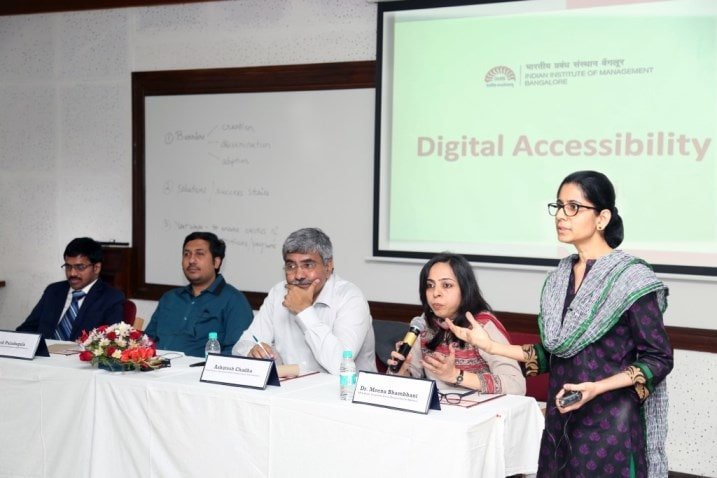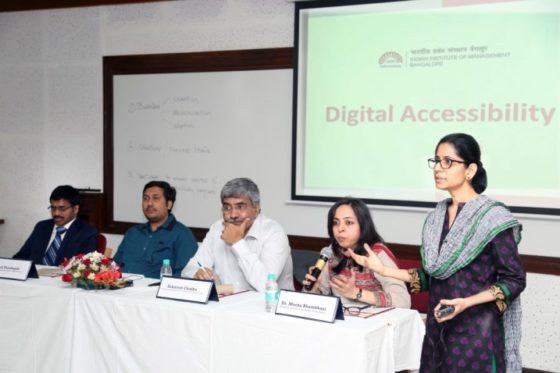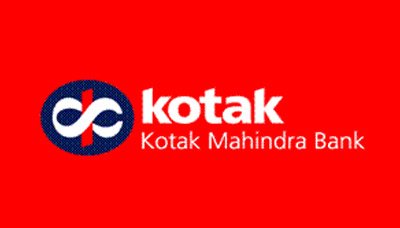
Experts at the roundtable on Digital Accessibility, hosted by IIM Bangalore, say accessibility should be in the DNA of products and argue for forward-looking regulation to drive inclusion
Bengaluru, Karnataka, India/Businesswire India//– In emerging Digital India, do policy makers and service providers consider persons with disability an important customer group? The roundtable on Digital Accessibility hosted by Indian Institute of Management Bangalore on Monday (December 19) addressed the need for diverse groups in the country to work on ensuring inclusion, which in turn will ensure the success of digital accessibility policies and programs.
The round-table, anchored by Professor Mukta Kulkarni, Mphasis Chair for Digital Accessibility and Inclusion at IIM Bangalore, focused on how digital accessibility can allow for productivity and inclusion through participation in educational, economic, and political spheres. However, as Professor Kulkarni noted, such accessibility is beneficial for everyone, and not just one sub-group. For example, she described how captioned video which helps us follow a movie via subtitles in noisy places was created for people who are deaf or hard of hearing.

The roundtable was attended by key players in the disability accessibility ecosystem, including founders of disability employment agencies, lead accessibility officers from the private sector, and disability policy and advocacy specialists.
Rakesh Paladugula, Founder, Maxability, and Accessibility Engineer at Adobe, focused on the effects of demonetization on persons with disability. “Persons with disability can neither use cash for their needs nor the web and mobile applications due to poor accessibility. Applications such as Paytm, Mobikwik, etc. have not thought about the needs of customers with disabilities. There are similar problems with Point of Sale (POS) terminals which are going to be market drivers in the retail space,” he said.
Remarking that regulations often come in the way of innovation, Ashutosh Chadha, Group Director, Government Affairs & Public Policy – Microsoft India, argued that policy has to be forward looking. “Policy must make accessibility a mandatory award criterion in all procurement decisions of the Government of India. Policy must promote public procurement standards and align them with global standards such as WCAG 2.0 AA for web content and services and policy must straddle campaigns such as Make in India, Start-up India and Digital India to crowd-source ideas and take them to market so that more and more new products with accessibility are developed,” he said.
“We have to have a clear road map for implementing digital accessibility, which goes in tandem with the national development agenda, otherwise policy initiatives will remain on paper without tangible benefits to persons with disability. Accessibility needs to be prioritized. In emerging Digital India, an inability to use technology will have drastic consequences to the economic and social independence of a person,” observed Nirmita Narasimhan, Policy Director, Centre for Internet and Society, India.
Rama Chari, Director, Diversity and Equal Opportunity Centre, said: “Accessibility of information, technology and communication is now a legal mandate. The new The Right of Persons with Disabilities Bill, 2016 clearly defines timelines to comply with accessibility requirements for service providers. It would be considered as discrimination if accessibility of buildings, information, etc. are not provided by establishments.”
Dr. Meenu Bhambhani, VP & Head – Corporate Social Responsibility, Mphasis, said: “There is a need of thought leadership in this space and hence the investment in partnership with IIMB to focus on research that will build a strong business case for accessibility in systems, services and products. We are buoyed by the passage of RPWD Bill 2016 and are confident that there would be enough and more business case for our digital ecosystem to be inclusive and accessible.”
Cristopher Broyles, Mphasis Chief Accessibility Officer, through a video message, added: “We’re looking to our partners and other companies to help develop cross-vertical approaches to ensure greater employment success by individuals with disability and to help organizations enhance their capabilities to reach a broader spectrum of customers.”
Listing what corporations, non-profits and the education sector can do to address accessibility, Srinivasu Chakravarthula, Lead Accessibility, Informatica, emphasized that mindset continued to be the main challenge. “Corporates should make product managers lead the accessibility part; non-profits should review apps and websites and share feedback, and universities and engineering schools must teach standards, usability and accessibility so that developers have the ability to write semantics right at the beginning,” he offered.
Dipesh Sutariya, Co-founder and CEO, EnAble India, and Shanti Raghavan, Co-founder and Managing Trustee, EnAble India, pointed out that accessibility did not mean changing, from scratch, legacy products. “Create an innovation or device or solution that disrupts existing thinking,” Dipesh suggested.
Calling for a “clearing house of ideas and products for people with disability”, Meera Shenoy, Founder, Youth for Jobs, said such a clearing house could ensure that R&D departments of large corporations as well as start-ups have a real connect with what is happening on the ground. “So many of them are trying to reinvent the wheel when there isn’t any need to,” she exclaimed.
Making a business case for investment in accessibility, Mohan Sundaram, Trustee and Board Member, Association of People with Disability, (APD), said: “There is enough evidence to show that innovation for the disabled makes the product far more valuable and productive for the able-bodied.” Hence, the crying need for corporates to hire people with disability in design departments and testing teams. “Hire as part of a strategy to enhance value; don’t hire PWDs to tick a box, to make up the numbers for compliance,” he added.
In her closing remarks, Professor Vasanthi Srinivasan from the Organizational Behaviour & Human Resources Management area of IIMB, who is also the Chairperson, Ethics and Code of Conduct, said conversations on accessibility should lead to the creation of a disability rights consumer network with a user compliance tracking research center that ensures that products and services are usable, practical and affordable along with being accessible.





